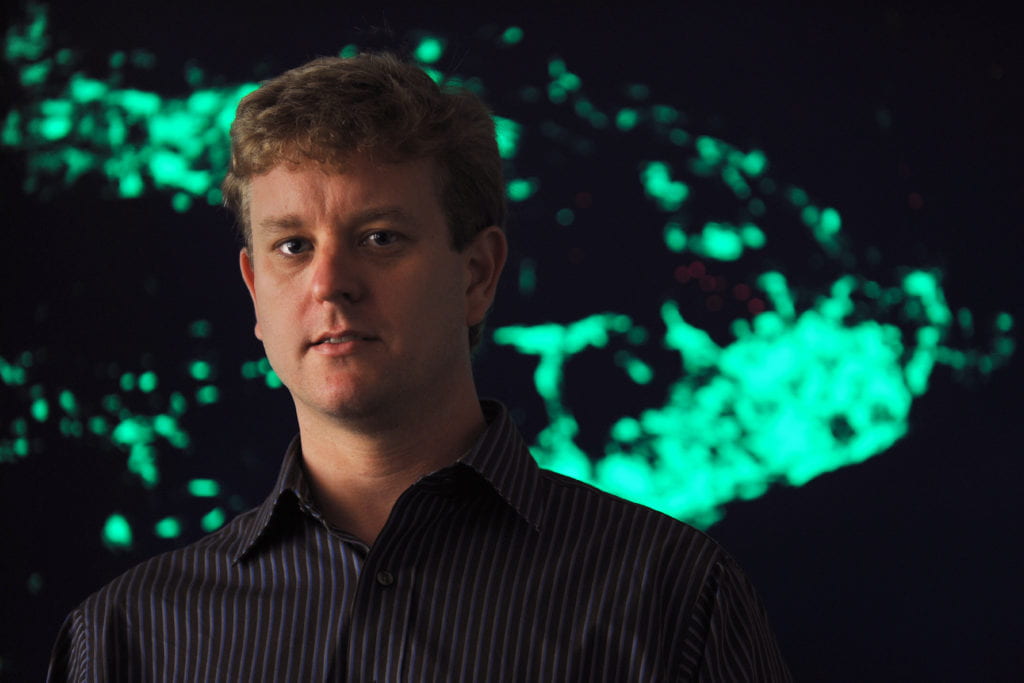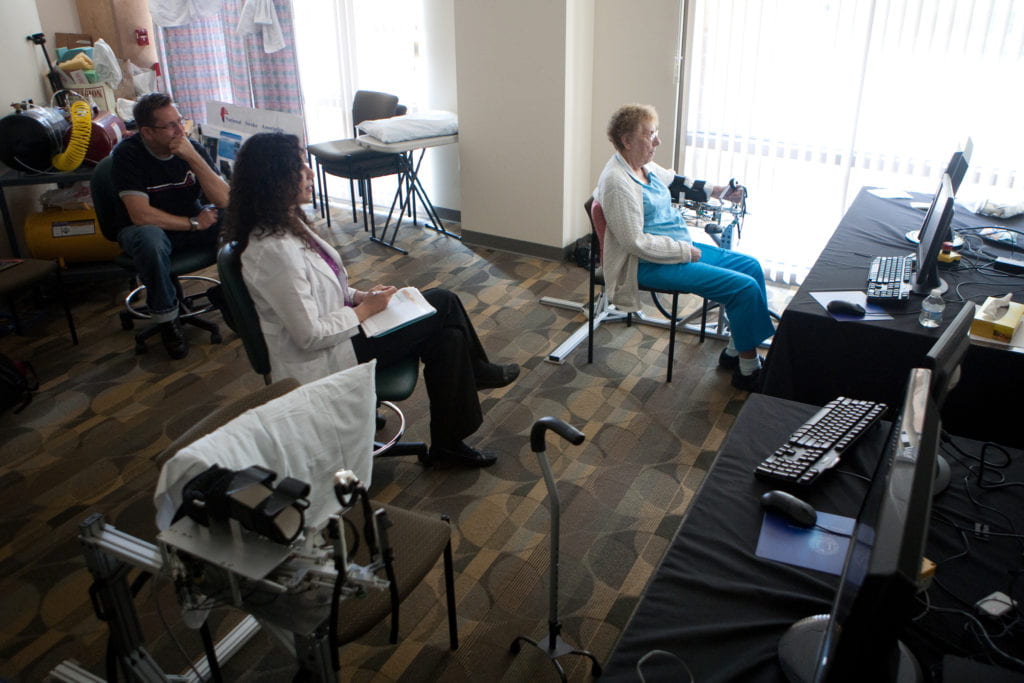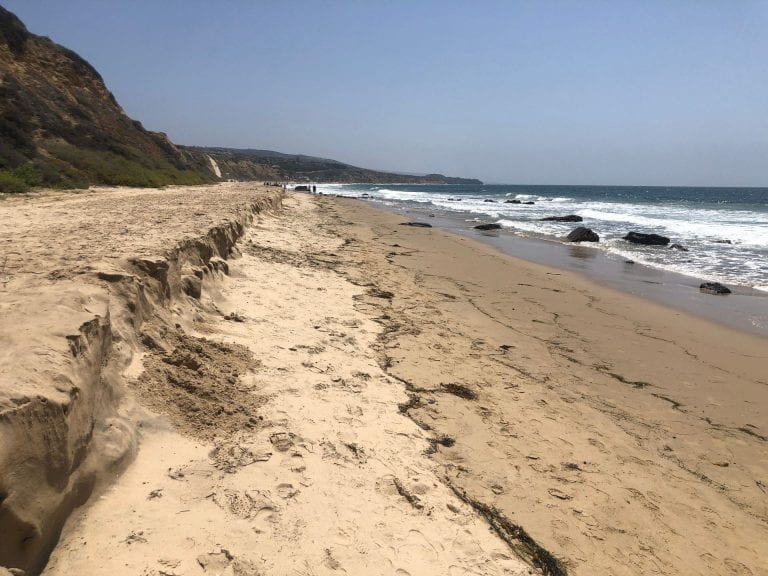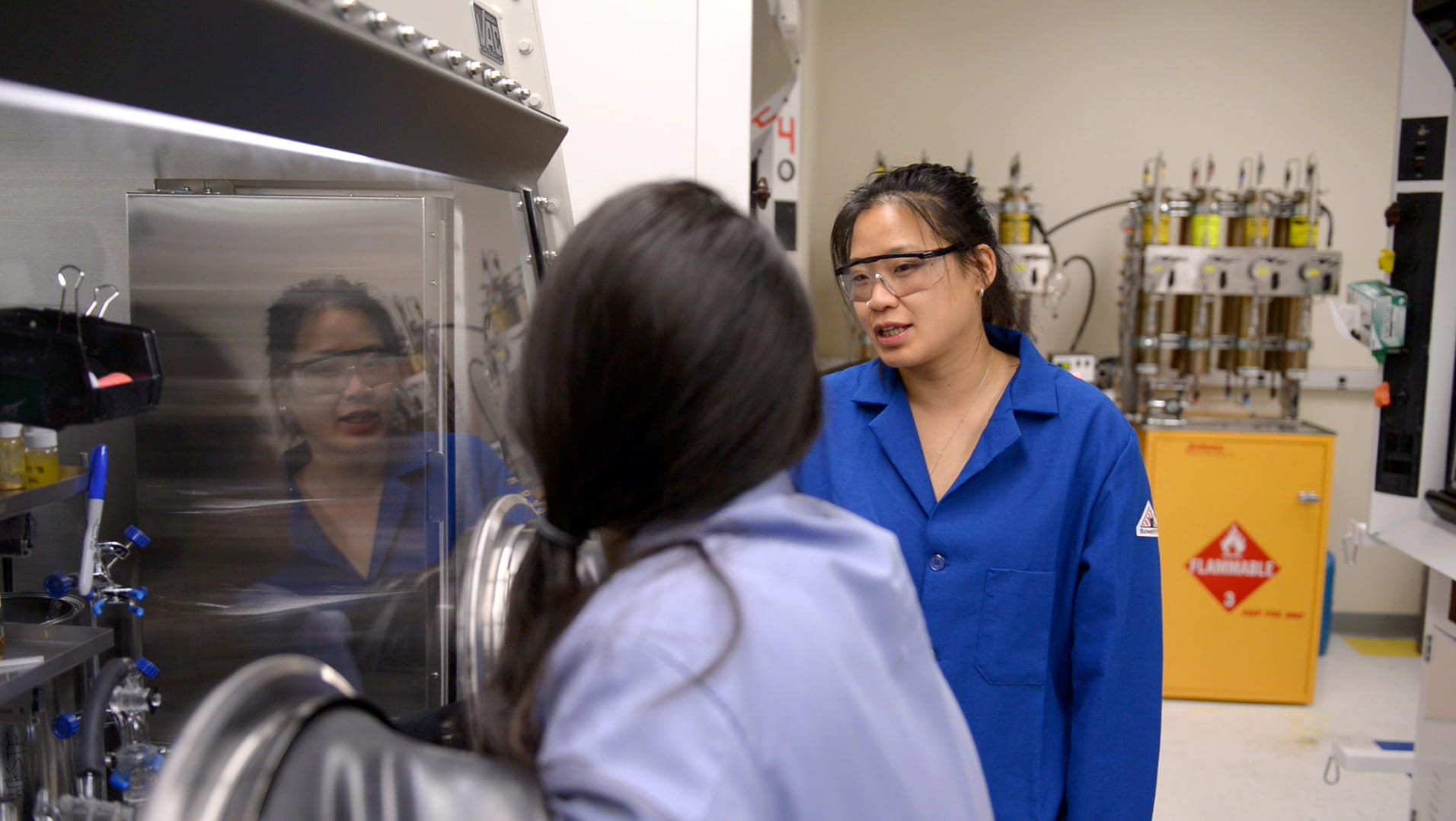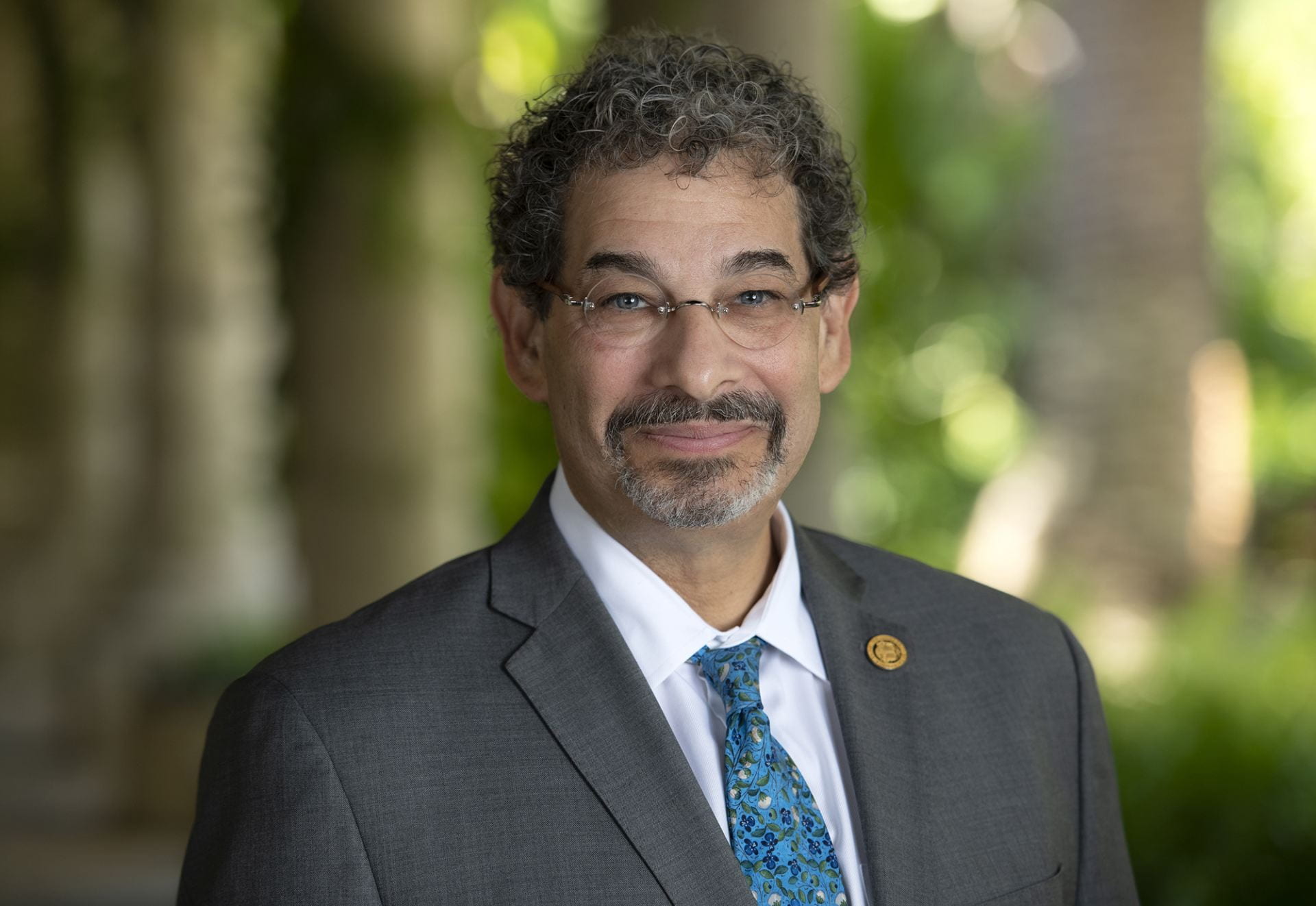Progress and promise
During the first week of October, the Sue & Bill Gross Stem Cell Research Center will sponsor events highlighting UCI’s progress in this promising area.
Stem cells burst onto the scientific scene just over a decade ago, raising hopes that the emerging field of regenerative medicine could provide new cures for a host of illnesses, injuries and diseases.
UC Irvine has remained on the vanguard of this field through its robust stem cell research center in Sue & Bill Gross Hall: A CIRM Institute, one of the few facilities in the world dedicated exclusively to stem cell-based research, education and patient care.
During the first week of October, the Sue & Bill Gross Stem Cell Research Center will sponsor events highlighting UCI’s progress. These coincide with other activities, such as the annual World Stem Cell Summit on Oct. 3-5, at which the 2011 World Stem Cell Report will be issued, and Stem Cell Awareness Day on Oct. 5, with observances throughout California, the U.S. and the world.
On Oct. 5, UCI’s stem cell scientists will host an open house from 4 to 6 p.m. for more than 125 Orange County high school and community college students and teachers, allowing them to visit laboratories and other facilities in Gross Hall and learn how stem cell research could change the future of medicine.
On Oct. 7, Gross Hall will be the site of the annual Stem Cell Research Symposium, a daylong forum in which UCI researchers from biology, medicine and engineering will present basic and translational findings on various disease-related topics.
Additionally, Susan V. Bryant, a UCI developmental biologist and former vice chancellor for research whose leadership was crucial to the university’s fledgling stem cell efforts, will speak Oct. 13 on “The Hype & Hope of Stem Cells” as part of the Allergan Foundation Lecture Series in Modern Biology.
“These events capture the fabulous atmosphere that exists in Gross Hall, where people from different disciplines are working together to reach a common goal,” says Peter Donovan, director of the Sue & Bill Gross Stem Cell Research Center. “It’s a place where the community and patient advocates can come and be energized – and where we can be energized by them.”
Since opening last year as the first freestanding building in California dedicated exclusively to stem cell research and training, Gross Hall has become the bustling home to 16 researchers representing diverse areas of science and medicine who share a passion for the power of stem cells.
This year, the center added two new faculty members to the team. Mathew Blurton-Jones, assistant professor of neurobiology & behavior, is exploring the use of stem cells to treat neurological disorders such as Parkinson’s and Alzheimer’s. Weian Zhao, assistant professor of pharmaceutical sciences, is studying how stem cells can be targeted to fight disease in specific areas of the body.
Gross Hall also has established a facility for physical rehabilitation research. Neurologist Dr. Steven Cramer is employing a robotic device with video games to improve hand and arm function in stroke victims. And biomedical engineer David Reinkensmeyer has originated several technologies to spur recovery from spinal cord injury and stroke.
“Robotics can boost the success of stem cell therapies,” Cramer says. “They can have maximum effect when paired with behavioral training that aids brain cell regeneration.”
In addition, the world’s first two clinical trials of stem cell-based treatments— both developed by Sue & Bill Gross Stem Cell Research Center scientists — continue to progress.
In September, the initial patient was enrolled in a chronic spinal cord injury trial at the Balgrist University Hospital in Zurich. Aileen Anderson and Brian Cummings at UCI collaborated with StemCells Inc. on the therapy, in which purified human neural stem cells introduced into the spinal column grow into neural tissue cells that migrate to sites of spinal cord damage. The Phase I/II trial will test both safety and preliminary efficacy in patients who are three to 12 months post-injury.
And a clinical trial started last year by the Geron Corp. for acute spinal cord injury — based on research by Hans Keirstead and Dr. Gabriel Nistor at UCI — now boasts four patients.
“I’m excited with how these trials are moving ahead,” Donovan says. “We have a ringside seat to history, and what we’re learning from these trials can help our efforts to create treatments for diseases like Alzheimer’s and Parkinson’s.”
